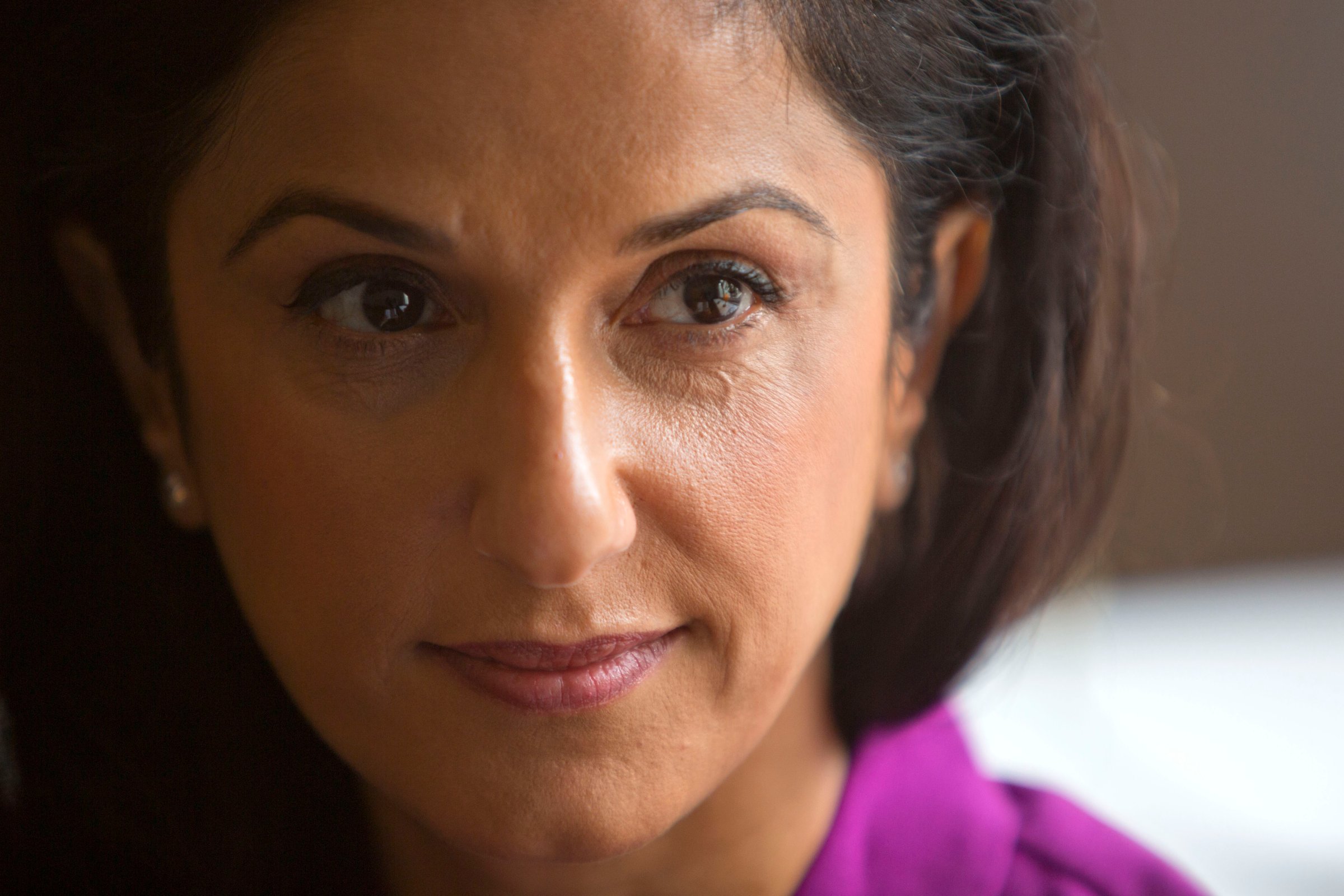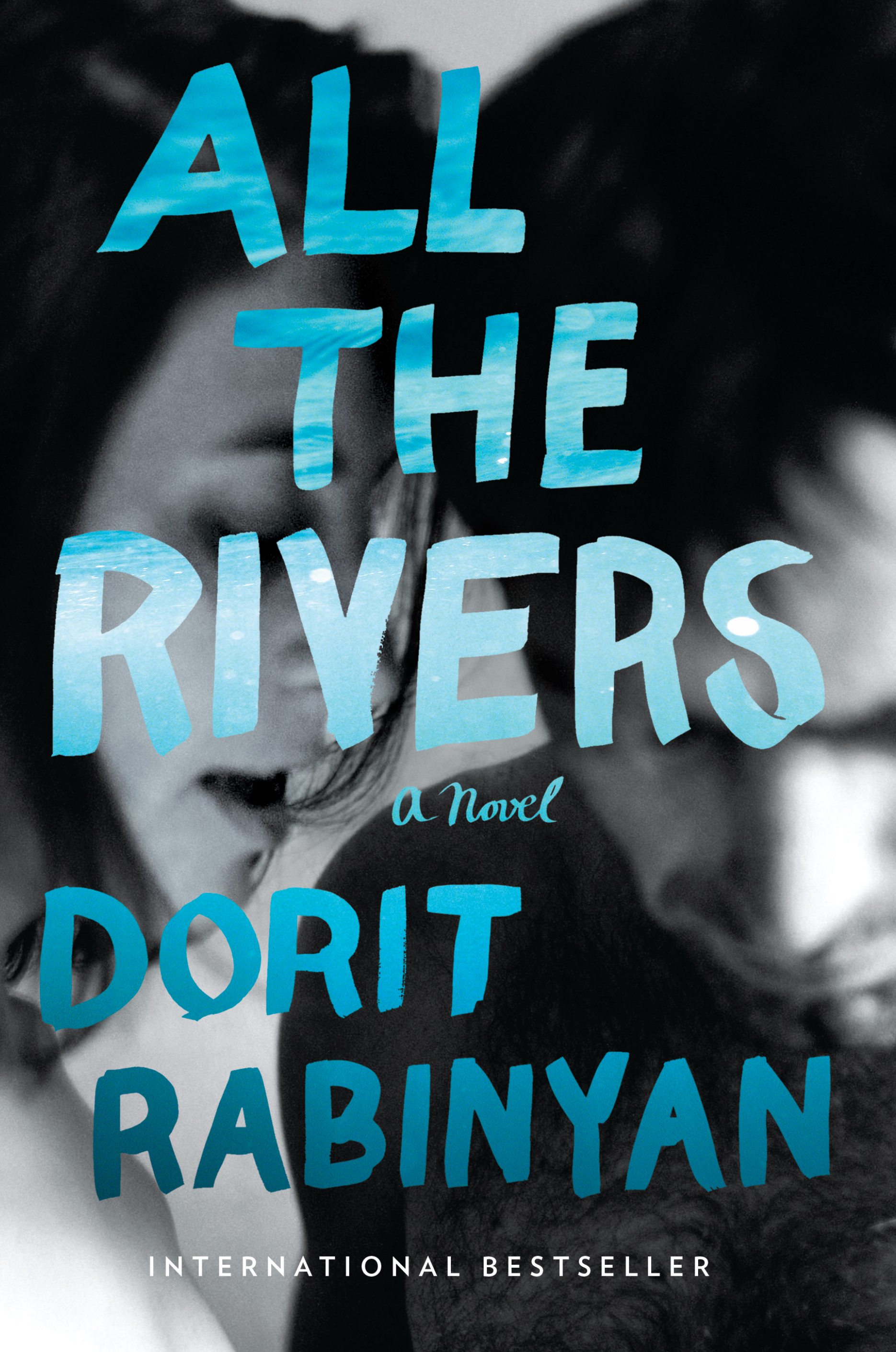
At 8 a.m. on December 31, 2015, I found myself in the studio of Israel’s Channel 2 morning show. Despite the coffee and the adrenaline, I felt sleepy, almost apathetic. I’d taken half a sleeping pill at midnight to calm my thoughts and get a few hours rest. Its effects hadn’t entirely faded.
As the soundman hooked up my microphone, my glance fell to the table. Among the colorful coffee mugs, I saw the front pages of Israel’s three major daily newspapers. I saw photographs of me next to those of Naftali Bennett, the Minister of Education, and the glaring headlines: “A Tale of Love and Darkness.” “Banned Book: A Bestseller.” “Education Ministry, Fearing Assimilation, Rejects Novel About Arab-Jewish Love Affair.”
That was my first glimpse of the public storm that would leave me, blinking in bewilderment, at its center; the raging whirlwind that would transform my novel into a symbol of the threat to freedom of expression; the unforgiving jungle peopled with aggressive politicians and entangled with egos and agendas; the pent-up shock that would pummel me as I watched a senior politician — a minister — slander me and my book, distorting my words until they were unrecognizable.
Six years earlier, in the summer of 2009, I visited my friend Yael at her home in Tel Aviv. Yael was then enduring a round of chemotherapy. Greeting me at the doorstep, she looked pale. Fortified by the black coffee she prepared for us, however, her voice soon regained its lively tune.
At some point Yael paused and said: “Enough. Tell me about your Hilmi and Liat.”
I was then revising the third draft of my novel. I had labored over All the Rivers for six years. Yael had read it shortly before she fell ill, and her comments on the manuscript had been warm and encouraging.
I told her that I had lately realized that I was not writing a love story but the story of a drawn-out resistance to love. My real subject was Liat’s fear that her Jewishness would dissolve into her partner Hilmi’s Arab identity. “The Zionist teaching of separateness,” I added.
Yael delivered her apprehensive prediction: “This will not be passed over in silence, I tell you. A Jewish woman and an Arab man, an intimate relationship, even if it takes place in New York — this is still a strong taboo.”
I chuckled. “It’s just a novel.”
“You scoff, do you? It sounds absurd, doesn’t it? But did you know that the Education Ministry rejected a children’s book a few years back?”
“How is that relevant?” I didn’t understand what she meant. “Which book?”
“A children’s book about a parrot and cuckoo who get married!”
I laughed, but she pressed on: “The Education Ministry said that a union between parrot and cuckoo was a kind of ‘inter-species sex’. They forced the writer to alter the ending.”
“That’s ridiculous!”
“Your Hilmi will threaten them. You’ve portrayed him, an Arab, as a full-bodied character. Someone to whom we can give our trust, our love, our empathy. Those crazy fanatics do everything they can to brainwash us into believing all Arabs as grotesque, frightening, violent — and you come along saying that Arabs are human? That they resemble us, Jews? Have you gone mad?”

By noon on that New Year’s Eve, the ripples had reached news outlets overseas, and the disqualification of All the Rivers was being reported in the media in Europe and beyond. By the time I got home, television crews from Japan, Al Jazeera and NBC were perched on my doorstep.
Yael’s bitter prophecy had come true. All the Rivers touched a raw nerve in Israeli society. The book tries to address the Jewish fear of losing our identity in the Middle East. And yet that very fear condemned it to official rejection. It was banned from the high-school curriculum on the grounds that “intimate relations between Jews and non-Jews threaten to subvert our distinct identity.”
The Minister of Education, Naftali Bennett had claimed that I portrayed Israeli soldiers as sadistic criminals — even though he flatly denied reading the book — and now all the Israeli social networks, news sites and current-affairs programs were discussing All The Rivers. It was all so absurd and bizarre: the throng of voices and strange faces, the text messages and the phone calls, the alerts, the posts, the shares, the tweets.
Though through the chaos, encouraging voices also arrived: Rumors about readers queuing for the last copies from bookstores, about national sales records being broken. Increasing numbers of Israelis, I was told, were registering their opposition to the Education Ministry by going out and buying the book.
One of the voices that filtered through was that of the acclaimed Israeli novelist A.B. Yehoshua: “Do not be afraid, Dorit, we are with you,” his voice said over the telephone. “You’re not alone in this. David Grossman and I spoke out, and Amos Oz is writing something up. Sami Michael, Meir Shalev, we all stand with you against this folly. Today it’s your book, tomorrow mine or someone else’s. If you are given cause to fear, then we should all be afraid.”
That next afternoon, a young Palestinian armed with a sub-machine gun entered a pub on Tel Aviv’s Dizengoff Street and opened fire. Two patrons were shot dead. Seven were wounded.
“Bread, milk, cheese, olives…. Hey, aren’t you that writer?” The shopkeeper and the woman standing in front of me in the checkout line both turned to look at me. Above them, a television screen was broadcasting the desolate scene of the aftermath of the Dizengoff attack.
“Yes, I thought it was you,” he said from behind the counter. His face hardened. “Tell me, how could you write that way about our soldiers?”
“Have you read the book?” The tension, tears and sleeplessness had made my voice hoarse beyond recognition. “How do you know what it says?”
“Naftali Bennett said everything yesterday on TV. What I heard was more than enough for me.”
As I went out into the street, into the downpour, I put down my bags to open my umbrella. As though mocking me, a gust of wind blew it inside out. Just then, the woman from the shop hissed at me in disgust: “You worthless piece of trash.” She spat at me. “You’re not worth the sole of a soldier’s boot.”
That was how my 2016 began: with spit on my face.
The shockwaves rippled on for months, and in varying intensities continue to this day.
I can do very little to protest the ugly stain that has blackened my reputation, or the repeated accusations made against me on all manner of public platforms. I can prevent neither the hideous search results on Google nor the sneers of strangers. “Look the book up yourself,” someone told me just the other week. “Read what Wikipedia says.”
If I had imagined this maelstrom of persecution, this loneliness, I would have been too frightened to write.
But despite the incessant efforts to caricature “the other” as demonic and boorish; despite the attempts to persuade us that the Palestinians are nothing but “shrapnel in the ass”; despite the political deadlock and Prime Minister Netanyahu’s steadfast refusal to engage with the other side — despite all this, All the Rivers is an aperture for dialogue. Far away in New York, Liat and Hilmi, an artist and a student, discover their affinities and their shared fate. Theirs is a complicated love story. But it is suffused with our responsibility to see the other, to be able to recognize ourselves in them. Above all, it rests on the hope that whether we want to or not, whether we shut our eyes or plug our ears, whether we drag our feet or stomp our legs, we will sooner or later admit that we — us and them — sail on the same boat.
Translated from the Hebrew by Benjamin Balint.
More Must-Reads from TIME
- How Donald Trump Won
- The Best Inventions of 2024
- Why Sleep Is the Key to Living Longer
- Robert Zemeckis Just Wants to Move You
- How to Break 8 Toxic Communication Habits
- Nicola Coughlan Bet on Herself—And Won
- Why Vinegar Is So Good for You
- Meet TIME's Newest Class of Next Generation Leaders
Contact us at letters@time.com